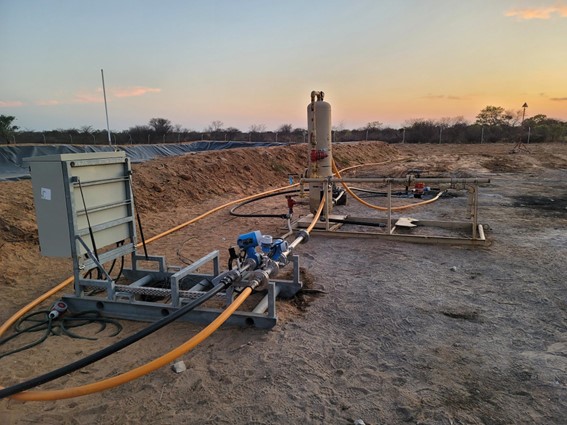This story requires a subscription
This includes a single user license.
Botala announced on Monday that the two firms signed a non-binding memorandum
of understanding (MoU) to jointly develop an LNG supply chain.
The collaboration aims to provide a “quick-to-market” solution to Southern Africa’s gas requirements, particularly South Africa’s anticipated gas shortage from mid-2027.
Under the terms of the MoU, Novo will act as a key offtaker and distributor of LNG from Botala’s Serowe Wellfield and related LNG production facilities.
The Serowe project near the town of Serowe consists of about 420,000 hectares of prospecting licenses in the Karoo-Kalahari basin.
Botala’s website shows that it has identified an independently certified 2C resource of 454 billion cubic feet (bcf) in the immediate vicinity of 11 wells drilled within these tenements, and a total prospective resource of more than 7 Tcf within the total area of the Serowe project.
Binding deal
The MoU between Botala and Novo outlines the key terms and phased approach to developing an LNG supply chain in Southern Africa.
Botala and Novo plan to finalize a binding gas sale agreement (GSA) within 90 days of signing the MoU, covering pricing mechanisms, production timelines, and logistics, Botala said.
Moreover, Botala said that a bankable feasibility study (BFS) for an up to 2 PJ/annum LNG plant is currently underway.
The BFS will provide a comprehensive assessment of the Serowe project’s technical and economic viability, ensuring that development of the wellfield and LNG plant is both financially and operationally sound, it said.
Kris Martinick, CEO of Botala said this partnership is a “game-changer” for Botala and for the entire Southern African energy landscape.
“The anticipated ‘gas cliff’ in 2027, as highlighted by Sasol, has sparked overwhelming interest from gas offtakers across the region,” Martinick said.
Last year, South Africa’s state power company Eskom and petrochemicals firm Sasol joined forces to explore potential future LNG requirements in South Africa.
“The collaboration aims to determine the potential volumes that South Africa requires to establish a viable LNG import market along with the enabling infrastructure, and will be facilitated by government-to-government relations where necessary,” the two firms said.
This initiative focuses on using gas for power generation to provide essential base load electricity, as the country’s gas supplies decline.

